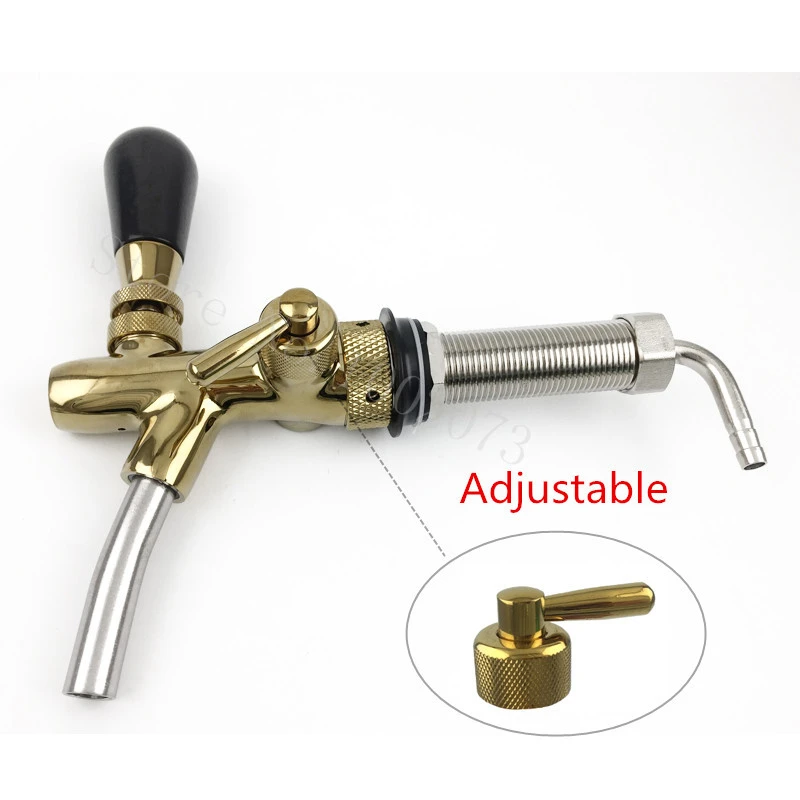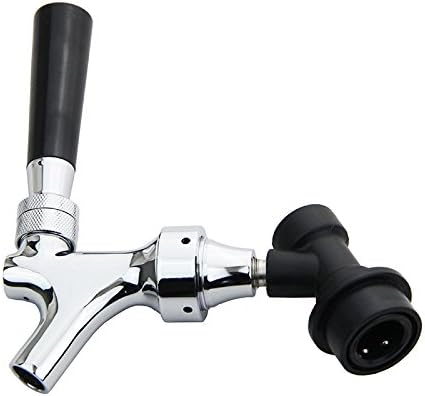I've seen three main ways that people are installing homebrew on their M1 Macs. The best method of install should be as smooth as possible while emulating intel architecture, and also should be as easy as possible to switch homebrew to native architecture when that is possible. Homebrew Launcher Loader (CIA) CIA that launches boot.3dsx from the SD card yellows8: Thread: Git: Spider3DSTools A collection of tools that exploited the o3ds's browser on Homebrew Launcher:: Official Ninjhax Homebrew Launcher. Mod with sorting and folder. Homebrew is the most popular package manager for Mac OS X. Homebrew Cask extends Homebrew with support for quickly installing Mac applications like Google Chrome, VLC, and more. No more dragging and dropping applications! This is an easy way to install Mac terminal utilities and graphical apps. The chrome plated brass body has a large pressure adjustment knob for easy use and includes a manual pressure release valve. BALL LOCK KEG COUPLERS: These complete ball lock home brew keg tap sets include both a gas in and beer out coupler for easy tapping of ball lock Cornelius Pepsi kegs.
The Homebrew package manager may be used on Linux and Windows Subsystem for Linux (WSL). Homebrew was formerly referred to as Linuxbrew when running on Linux or WSL. It can be installed in your home directory, in which case it does not use sudo. Homebrew does not use any libraries provided by your host system, except glibc and gcc if they are new enough. Homebrew can install its own current versions of glibc and gcc for older distributions of Linux.
Features, installation instructions and requirements are described below. Terminology (e.g. the difference between a Cellar, Tap, Cask and so forth) is explained in the documentation.
Features
- Can install software to your home directory and so does not require sudo
- Install software not packaged by your host distribution
- Install up-to-date versions of software when your host distribution is old
- Use the same package manager to manage your macOS, Linux, and Windows systems
Install
Homebrew Chrome Extension
Instructions for a supported install of Homebrew on Linux are on the homepage.
The installation script installs Homebrew to /home/linuxbrew/.linuxbrew using sudo if possible and in your home directory at ~/.linuxbrew otherwise. Homebrew does not use sudo after installation. Using /home/linuxbrew/.linuxbrew allows the use of more binary packages (bottles) than installing in your personal home directory.

The prefix /home/linuxbrew/.linuxbrew was chosen so that users without admin access can ask an admin to create a linuxbrew role account and still benefit from precompiled binaries. If you do not yourself have admin privileges, consider asking your admin staff to create a linuxbrew role account for you with home directory /home/linuxbrew.
Avance logic driver download. Follow the Next steps instructions to add Homebrew to your PATH and to your bash shell profile script, either ~/.profile on Debian/Ubuntu or ~/.bash_profile on CentOS/Fedora/Red Hat.
You’re done! Try installing a package:
Homebrew Chromebooks
If you’re using an older distribution of Linux, installing your first package will also install a recent version of glibc and gcc. Use brew doctor Download danone driver. to troubleshoot common issues.
Requirements
- GCC 4.7.0 or newer
- Linux 2.6.32 or newer
- Glibc 2.13 or newer
- 64-bit x86_64 CPU
Paste at a terminal prompt:
Debian or Ubuntu

Fedora, CentOS, or Red Hat
ARM
Homebrew can run on 32-bit ARM (Raspberry Pi and others) and 64-bit ARM (AArch64), but no binary packages (bottles) are available. Support for ARM is on a best-effort basis. Pull requests are welcome to improve the experience on ARM platforms.
You may need to install your own Ruby using your system package manager, a PPA, or rbenv/ruby-build as we no longer distribute a Homebrew Portable Ruby for ARM.
Homebrew Chromecast
32-bit x86
Homebrew does not currently support 32-bit x86 platforms. It would be possible for Homebrew to work on 32-bit x86 platforms with some effort. An interested and dedicated person could maintain a fork of Homebrew to develop support for 32-bit x86. Comark driver download for windows.
Alternative Installation

Extract or git clone Homebrew wherever you want. Use /home/linuxbrew/.linuxbrew if possible (to enable the use of binary packages).

Homebrew on Linux Community
